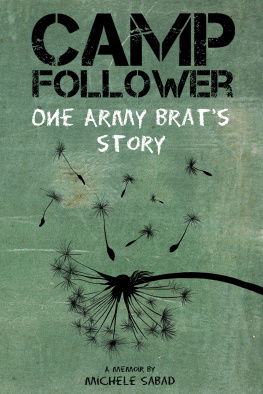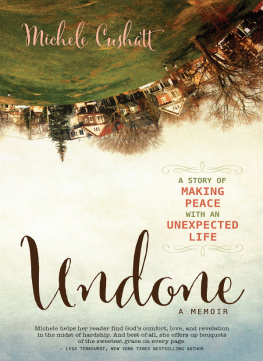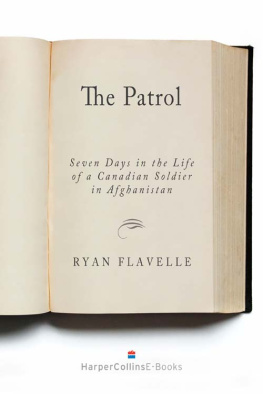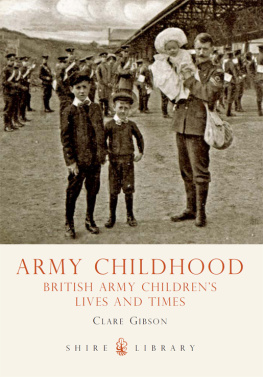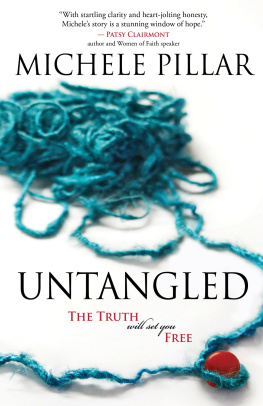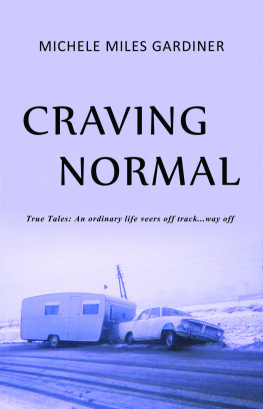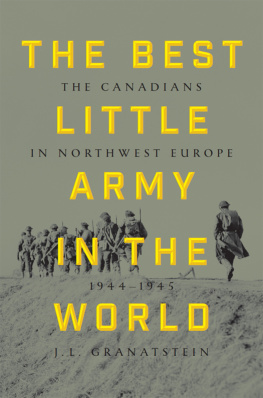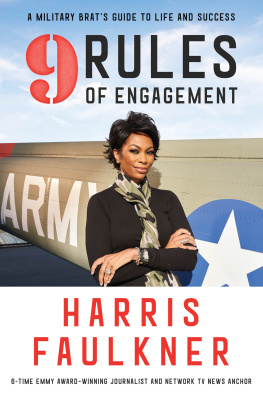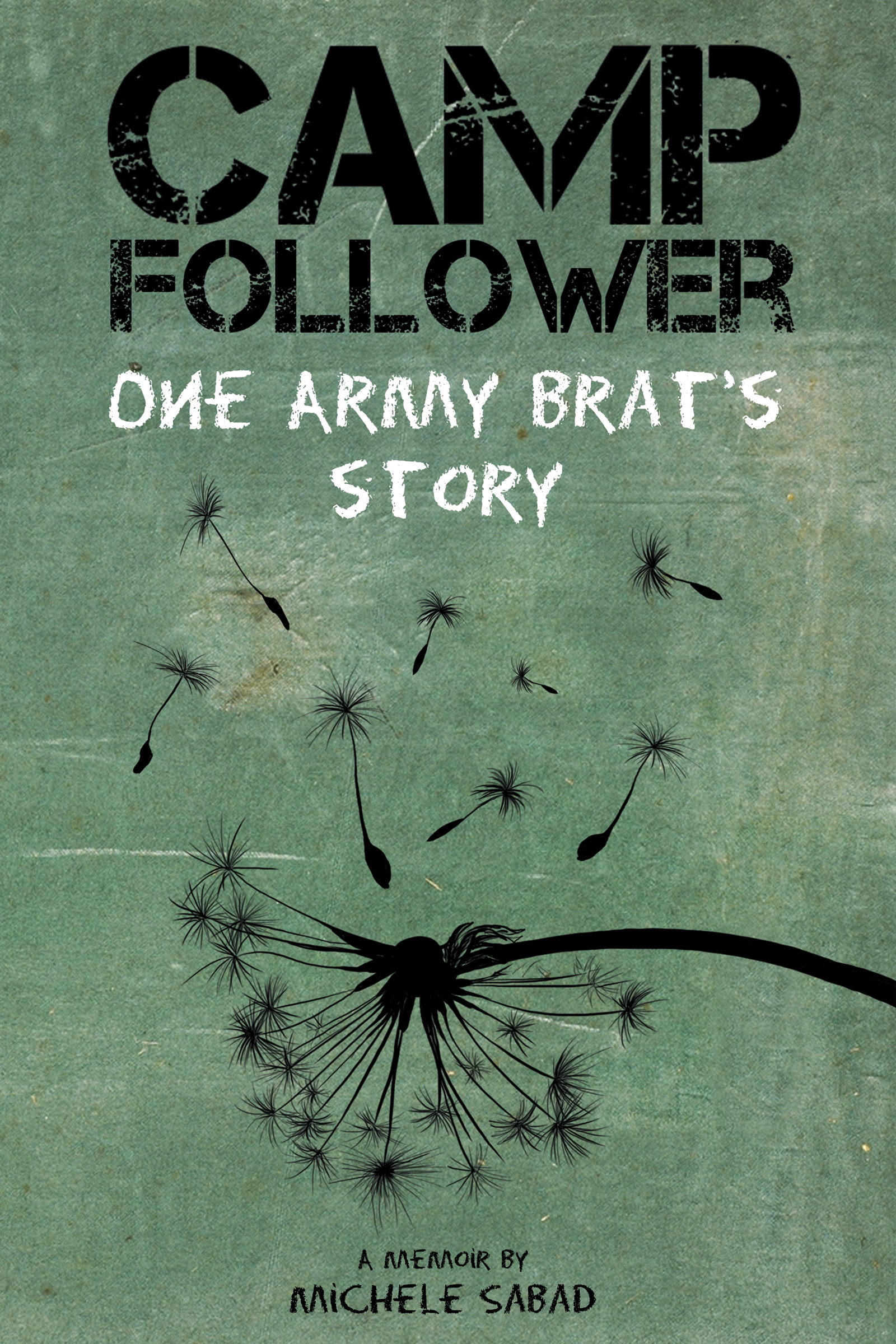Camp Follower
One Army Brats Story
Michele Sabad
https://StevieSzabad.com/
Camp Follower One Army Brats Story 2017 by Michele Sabad. All rights reserved.
No part of this book may be used or reproduced in any manner whatsoever without written permission except in the case of brief quotations in critical articles and reviews. For more information, contact MESabad.
First edition.
Cover art, design, and interior sketches by Caro Frchette.
Typesetting and interior design by ric Desmarais.
Edited by Cait Gordon.
Author photo by Ryan Sabad
Legal deposit, Library and Archives Canada, October 2017.
Paperback ISBN: 978-1-7751423-0-0
Ebook ISBN: 978-1-7751423-1-7
MESabad
https://stevieszabad.com/
Dedicated to the memory of my mother, Myrtle Sabad.
Contents
1992: Cold Lake, Alberta. Hockey Mom Incident.
(As told from 2010 Buffalo, New York.)
Preface
Spring 1999: Aylmer, Qubec
Okay, boys, were going to Germany for holidays this year! Right after school lets out in June, my husband Don announces.
Huh? says DArcy, my soon-to-turn thirteen-year-old son.
What? Why Germany? asks his nine-year-old brother, Sasha.
Yeah, why not Disneyworld or something? And arent we going to Manitoba in August? Where did you come up with Germany?
Why Germany indeed? My husband Don and I, both army brats who had lived in Germany as kids, had recently realized that our own rapidly-growing children had not really lived or been anywhere other than their own province of Qubec. Sure, theyd been born in Winnipeg and visited Manitoba to see grandparents every summer, but gosh, by the time I was nine Id lived in two different countries, and by thirteen I could add a couple more different provinces as having been my home. Same for my husband. Despite Dons being an Air Force officer himself, our kids were not really military bratsnot like we had been. When had the world changed? Why had I not noticed?
Well, its a long story. My story.
Introduction
I f you grew up in the 1960s or 1970s on Canadian military bases, then maybe joined up yourself or became a military spouse, I know a few things about you. First, you dont have a hometown. Sorry, it doesnt matter where you were born; its not a hometown if you dont remember it or have no family in it. I know you would have explained this countless times to people over the years in response to the innocently asked, Where are you from? and, Oh, you moved around with the military? But where were you born?
Take a deep breath; explain it again.
Another thing I know is that youre very patriotic. You cry at the national anthem anytime, anywhere: community events, hockey or ball games (even those on TV), not to mention at Canada or Remembrance Day or any kind of ceremonyespecially if there are bagpipes! You are attuned to anything military, like news headlines or TV shows. You stop and look up wistfully at the droning Hercules flying overhead, or better yet, thrill to the random F-18 jet flyby. You probably touch, even fondle the tank now sitting as a monument in your towns armoury square.
You might get itchy to move every couple of years, or, conversely, never want to move ever again. I do know you feel connected as a community to others who shared your upbringing. You make new acquaintances, to find out they grew up military and the immediate rapport is: Where were you posted? Me too! When did you live there? Did you know so-and-so?
You know the drill. Pun intended.
Of course, these things I know, too; its also my story.
I didnt have a hometown, but I do have half or maybe three-quarters of a lifetime of stories about the sub-culture of people attached to the Canadian Armed Forces. I lived the life of a base bratalso known as a military brat; PMQ brat; Army, Navy, or Air Force brat (all terms to describe us)and our unique lifestyle, which was the lifestyle of the Camp Follower.
There have been camp followers ever since humanity has sent peoplehistorically menoff to fight wars on behalf of the societies, cultures, or countries they represent. The camp followers provided services to the fighting men: food, supplies, tailoring, housekeeping, entertainment, even the comfort that women have always found men willing to pay for. A whole camp-follower community would pop up outside the fenced, permanent military camp or base, which existed as its own small town. In Canada today, the camp-follower lifestyle is much more integrated into the civilian world, but you can find such towns still economically dependent on the military base they once grew around, such as Courtenay, British Columbia; Oromocto, New Brunswick; and Petawawa, Ontario.
Camp followers have also always included immediate families of the warrior member. Soldiers, sailors, and airmen are people, and these people love, marry, and procreate. The modern military, as in after World War II, formally institutionalized this reality with Personal Married Quarters (PMQ) for the married member. We called our homes PMQs more often than houses.
As the old Canadian Armed Forces recruitment slogan said: Theres no life like it even for the camp follower. Well, there had been no life like it, but that lifestyle has mostly melted away today. Historically speaking, we live in peaceful times, where our military members are highly educated and well-paid. They are more likely to buy a house in the civilian community than to put their family in a rented PMQ. The Department of National Defence (DND) school system is dismantled and military kids go to civilian schools. Postings are for longer periods today, and family considerations are respected. The old base-brat experience that I knew has pretty much expired.
I grew up in different times for our country and its armed forces: post-WWII and Allied bases in Europe, the Cold War, peacekeeping missions in Cyprus and the Middle East. My father joined the army to escape poverty, not as a career choice to get a trained skill that he could use in civilian life later. It was a unique time in history, with unique experiences for those who lived it. And it was brief, only lasting really a generation, more or less. It was also the generation of the Baby Boomers, which had its own uniqueness in Western society. Coupled with a military upbringing, this base-brat experience was doubly unique for people like me.
We lived on military bases in PMQs that were assigned and not chosen, based on family size and members rank. We went to DND schools. As dependent spouses and children, we were issued our own ID cards for access to our gated and fenced (barb-wired) communities. We learned to read Defense de Passer on the signs of our delineated borders. No matter where we were, the base was always bilingual as far as I remember. We were subject to search and seizure at any time, for any reason, by the military police. We had curfews. Our school buses were army green and driven by uniformed privates or corporals. And the interesting part? We didnt think anything about this life was out of the ordinary. It was ordinary to uswe were born into it, not recruited or chosen. Yet ordinary it was not. It is not ordinary to grow up never living among elderly people, or people with special needs. It is not ordinary to hand over ID on command as a teenager to military police just because. It is not ordinary to move multiple times in the same school year, or live out of a motel while your furniture catches up. Or never live in the same town as your relatives, to never meet some grandparents. Not to say that these things never happened in civilian lifeof course they did. Im just saying that all of these kinds of things and more happened to most base brats of my time.

